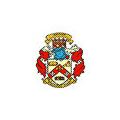Studies & Degrees in Human Resources
Choose where you would like to study Human Resources:
ArgentinaAustraliaAustriaBangladeshBelgiumBrazilCanadaChileChinaCyprusFranceGeorgiaGermanyGhanaGreeceHong KongHungaryIcelandIndiaIrelandIsraelItalyLebanonMacaoMaltaMexicoMoldovaMoroccoMozambiqueNepalNetherlandsNew ZealandOmanPakistanPapua New GuineaPortugalPuerto RicoRussiaSaudi ArabiaSingaporeSloveniaSouth AfricaSouth KoreaSpainSwitzerlandThe United KingdomThe United StatesTurkeyVenezuelaZambiaHuman Resources Study Programs
Level: Professional Development
Location: Madrid
Level: Undergraduate Bachelors
Location: Villanueva de la Cañada
Human resources is the study and practice of facilitating the work experience in any office or workplace. It covers everything from recruitment to severance and retirement, and may focus on such issues as staff needs, training, health and safety, performance management and review, personal relationships in the office, organizational psychology, and labor relations. HR is a diverse field with a wide variety of jobs available, which makes it a popular major for professional, practical people.
Personal Qualities
- People skills and desire to work face-to-face with others
- Thick skin – ability to deliver bad news about employment without letting it affect you too much
- Compassion and empathy, kind demeanor
- Understanding of human behavior in the workplace – some background in psychology is ideal
While human resources contains a number of distinct sub-fields, the most common course of study is the “generalist” option – that is, most people who study human resources learn about all areas and are prepared to fill a number of roles at their organizations. This includes courses in various other fields, particularly psychology, management, and law. HR is a great choice for people who have broad interests and want to take courses in many different subjects during their time at school. Those who do specialize in areas like labor relations or compensation do so at the graduate level, or later in their careers.
It is worth noting that it may not be strictly necessary to study human resources in order to get a job in an HR department. Many people who find good work in this field do so after completing degrees in other subjects, particularly psychology. A degree in psychology provide the knowledge of human behavior and relationships that is critical to success in the field of human resources. In addition, many employers find that the well-rounded education of graduates from liberal arts colleges is excellent preparation for a job in a human resources office. While majoring in human resources is a good way to show your commitment to the field, always remember that jobs in human resources will not be closed off to you simply because you chose a different major.
Career Options
Of course, not every HR major goes on to work in a human resources department; this broad degree equips graduates to work in other areas, particularly management. In many cases, small organizations such as start up businesses and niche NGOs hire HR experts to help manage their operations. In small organizations, an understanding of human relationships is more important than an understanding of organizational structure, so people with a background in human resources can be extremely valuable.
HR is perennially in demand at organizations of all sizes in all sectors, so you shouldn’t have much difficulty finding an entry-level position after graduation. Human resources officers often enjoy the variety of tasks that they are faced with, since everything from personal disputes to contract interpretation may come across their desks during a given day. In addition, job security and the feeling of helping others contribute to making HR a rewarding field to work in.



